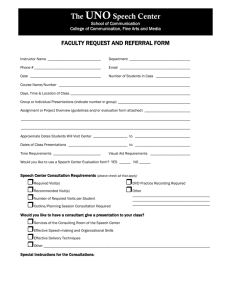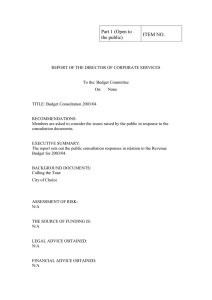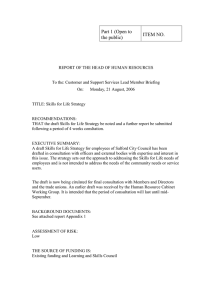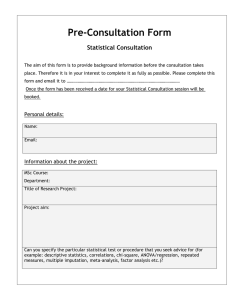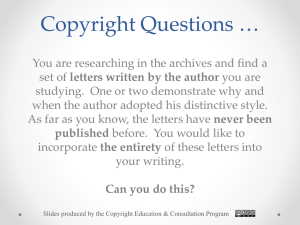Consultation principles
advertisement
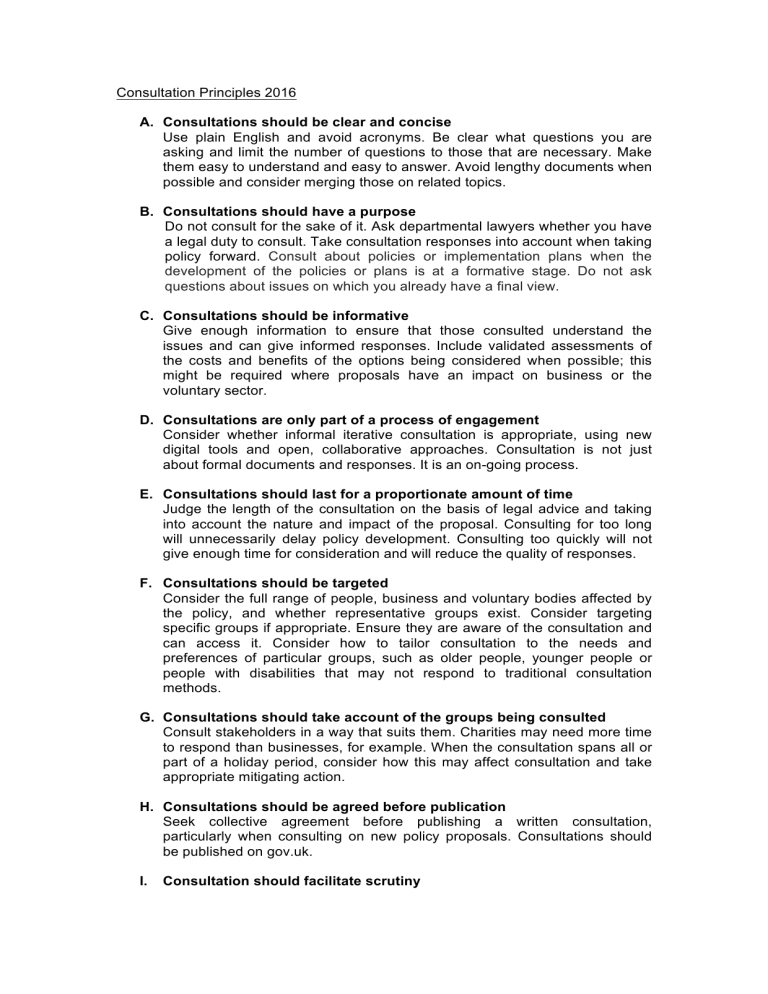
Consultation Principles 2016 A. Consultations should be clear and concise Use plain English and avoid acronyms. Be clear what questions you are asking and limit the number of questions to those that are necessary. Make them easy to understand and easy to answer. Avoid lengthy documents when possible and consider merging those on related topics. B. Consultations should have a purpose Do not consult for the sake of it. Ask departmental lawyers whether you have a legal duty to consult. Take consultation responses into account when taking policy forward. Consult about policies or implementation plans when the development of the policies or plans is at a formative stage. Do not ask questions about issues on which you already have a final view. C. Consultations should be informative Give enough information to ensure that those consulted understand the issues and can give informed responses. Include validated assessments of the costs and benefits of the options being considered when possible; this might be required where proposals have an impact on business or the voluntary sector. D. Consultations are only part of a process of engagement Consider whether informal iterative consultation is appropriate, using new digital tools and open, collaborative approaches. Consultation is not just about formal documents and responses. It is an on-going process. E. Consultations should last for a proportionate amount of time Judge the length of the consultation on the basis of legal advice and taking into account the nature and impact of the proposal. Consulting for too long will unnecessarily delay policy development. Consulting too quickly will not give enough time for consideration and will reduce the quality of responses. F. Consultations should be targeted Consider the full range of people, business and voluntary bodies affected by the policy, and whether representative groups exist. Consider targeting specific groups if appropriate. Ensure they are aware of the consultation and can access it. Consider how to tailor consultation to the needs and preferences of particular groups, such as older people, younger people or people with disabilities that may not respond to traditional consultation methods. G. Consultations should take account of the groups being consulted Consult stakeholders in a way that suits them. Charities may need more time to respond than businesses, for example. When the consultation spans all or part of a holiday period, consider how this may affect consultation and take appropriate mitigating action. H. Consultations should be agreed before publication Seek collective agreement before publishing a written consultation, particularly when consulting on new policy proposals. Consultations should be published on gov.uk. I. Consultation should facilitate scrutiny Publish any response on the same page on gov.uk as the original consultation, and ensure it is clear when the government has responded to the consultation. Explain the responses that have been received from consultees and how these have informed the policy. State how many responses have been received. J. Government responses to consultations should be published in a timely fashion Publish responses within 12 weeks of the consultation or provide an explanation why this is not possible. Where consultation concerns a statutory instrument publish responses before or at the same time as the instrument is laid, except in exceptional circumstances. Allow appropriate time between closing the consultation and implementing policy or legislation. K. Consultation exercises should not generally be launched during local or national election periods. If exceptional circumstances make a consultation absolutely essential (for example, for safeguarding public health), departments should seek advice from the Propriety and Ethics team in the Cabinet Office. This document does not have legal force and is subject to statutory and other legal requirements.

